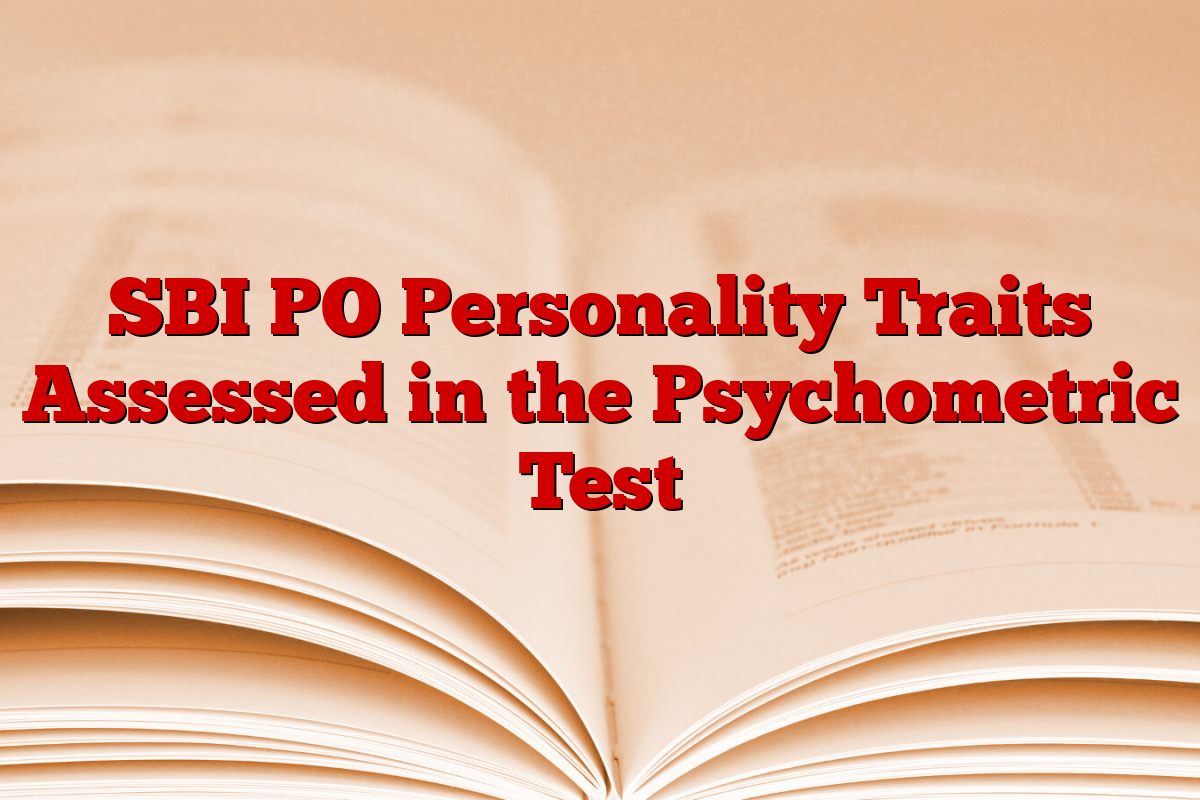State Bank of India (SBI) has set a psychometric test on 31 May 2025 for the Recruitment Officer (PO) 2025. This test not only serves as an essential tool for assessing the educational capabilities of a candidate, but also has his behavior and psychological suitability for the role of leadership in India’s largest public sector bank. Unlike written tests, which evaluate knowledge and logic, psychometric evaluation focuses on a candidate’s personality, values, emotional reactions and professional nature. This provides information about how a candidate is likely to perform under pressure, interact with teams and align with bank values.
SBI PO Psychometric Test assessed personality symptoms
SBI PO Psychometric Testing is designed to provide a multi-dimensional understanding of a candidate’s mindset, professional morality and mutual behavior. Below are the major personality symptoms that are likely to evaluate this test:
1. Leadership capacity
Candidates are evaluated on their ability to take initiative, informed decisions and motivate others in team settings. The bank seeks individuals who show the ability to lead for example, especially in uncertain or high pressure situations.
2. emotional maturity
This involves evaluating that a candidate manages his emotions and belongs to others. A future PO should be calm, composed and respectable, especially during customer conversation or conflict solution.
3. Moral decisions and integrity
Instead of testing moral standards only, the psychometric test evaluates whether candidates can take appropriate and honest decisions constantly, even while dealing with ambiguity or stress.
4. Responsibility and reliability
The test measures such as accountability, commitment to duty, and a strong sense of reliability, which reflects everyone that a person consistently follows the deadline, follows procedures, and fulfills job responsibilities.
5. Organizational awareness
This includes the understanding of a candidate and respect, structure and honor for the order. It is not about the visually rule-bogus, but about the evaluation of protocols that support organizational efficiency and discipline.
6. Pay attention to social norms
Candidates are evaluated to their ability to communicate properly and professional in social and professional settings. This includes awareness about tone, timing and etiquette in customer and colleague interactions.
7. Further thinking and planning capacity
Which can be described as foresight, here is tested as the ability to estimate the challenges of the candidate, effectively plan and decide on long -term implications.
8. Social and mutual comfort
Instead of classifying someone as an extrovert or introverted, the test checks how well a candidate adapters to the team settings, attachs to conversation, and expresses ideas with clarity and confidence.
9. Team Work and Cooperation
SBI gives a strong emphasis on colleague skills. This includes team alignment, mutual honor, and desire to work towards shared goals, especially in high-day or service-oriented roles.
10. Self-conscience and focus
It measures self-discipline, perseverance and ability to be committed to tasks over time. This indicates how candidates manage their time, maintain attention, and provide independent results without continuous supervision.
Why psychometric testing for SBI PO role matters
Psychometric testing adds depth to the recruitment process, which is able to look beyond SBI written score. This ensures that candidates entering the final round have psychological readiness to take the versatile responsibilities of an advocate officer. This is particularly important in roles where trust, leadership and public behavior are central for job profiles.
In addition, the results of the test also guide the interviewers during the final interaction. For example, if the test flags the less emotional intelligence or high risk-circulation, interviewers may detect those areas through targeted questions. This ensures a more balanced and overall evaluation.
SBI PO Psychometric Test approach
Be authentic: Your true personality is more favorable than an artificial. Be honest in your reactions.
Stay consistent: Avoid contradictions in your answers; Inconsistent patterns can increase concerns.
Understand the role expectations: Consider what symptoms are important for a bank officer, including responsibility, communication, morality and reliability.
Stay calm: Throw each question. Many tests are timed and require your natural spontaneous response.
Practice mock test: Avoid yourself with psychometric formats to reduce the concern of testing-day and improve reaction clarity.

